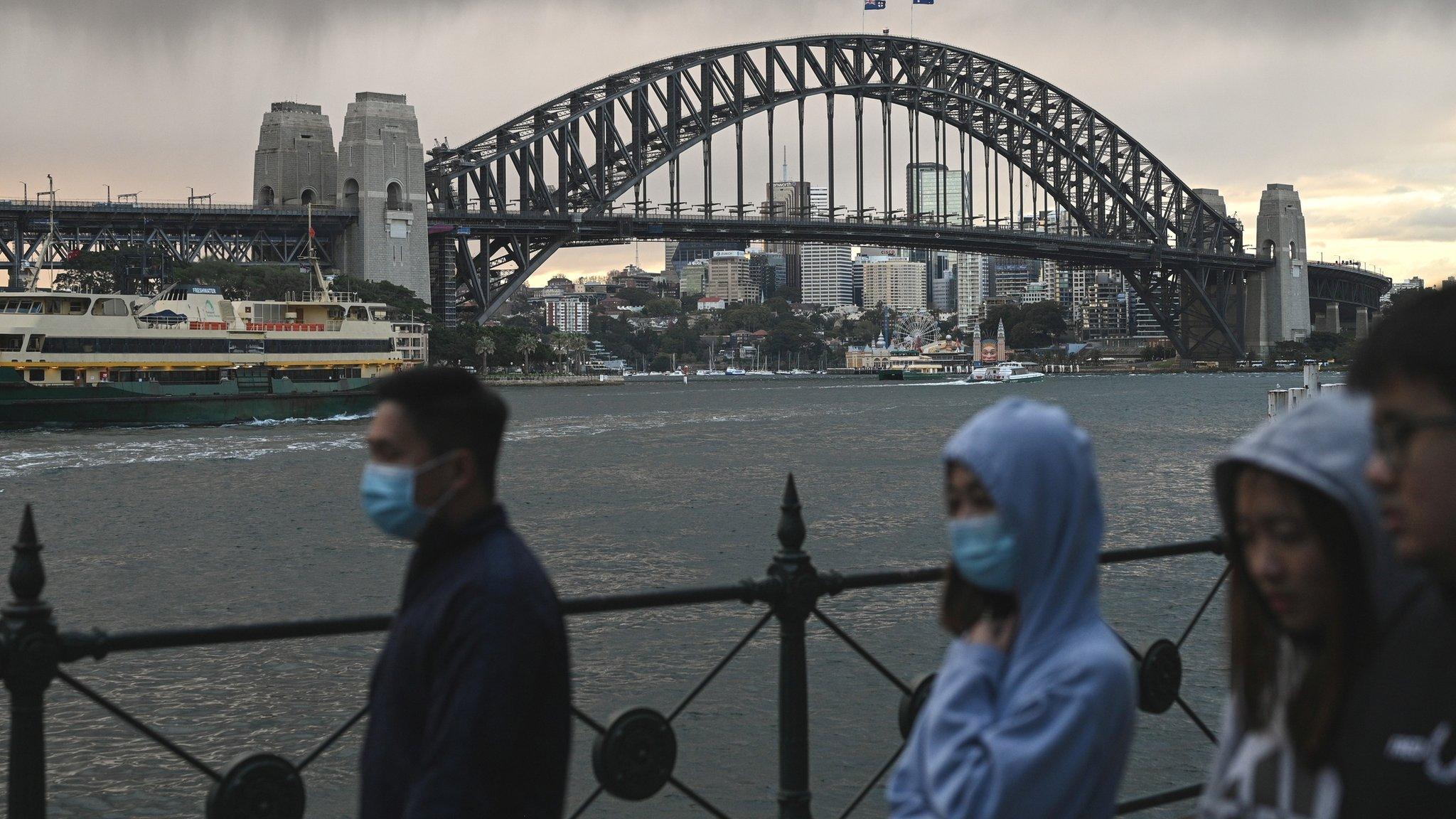Covid: Australian vaccine abandoned over false HIV response
- Published
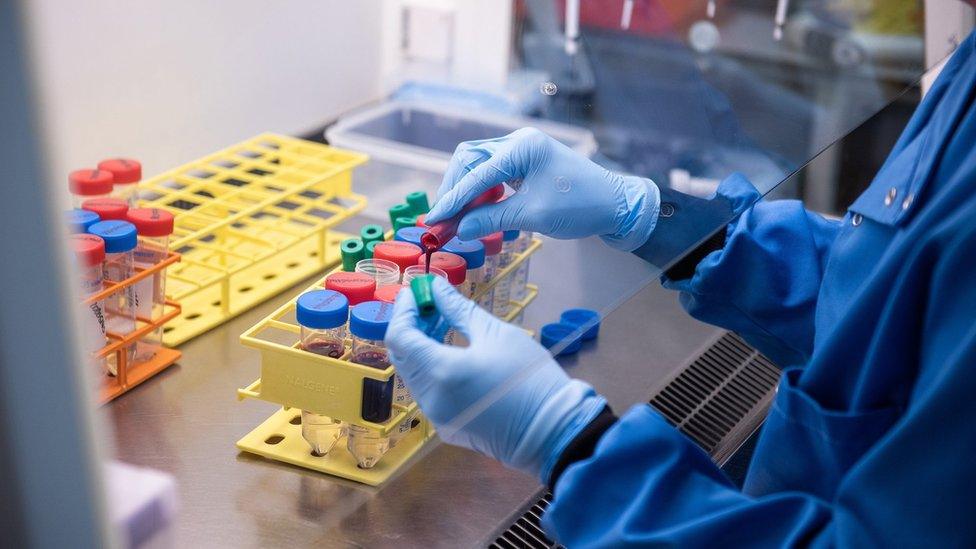
Australia will maintain its Oxford/AstraZeneca vaccine orders but cancel another type
A promising Australian candidate for a coronavirus vaccine has been abandoned after trial participants returned false HIV positive results.
Australia had previously agreed to buy 51 million doses of the vaccine being developed by Australian firm CSL and the University of Queensland (UQ).
The government said orders of other vaccines would now fill the shortfall.
CSL and UQ stressed that the positive results were false - meaning trial participants' health was not at risk.
The Australian government said it had now entered an agreement for the Novavax vaccine, and upped its existing order of the Oxford/AstraZeneca vaccine.
The UK was the first to begin rolling out a vaccine from Pfizer this week.
What happened with the UQ/CSL vaccine?
The vaccine had been in stage one of trials, and proving to be effective in making antibodies.
But it also generated HIV antibodies in some recipients - which meant it showed false positives for HIV. Further testing proved the HIV wasn't there.
CSL and UQ said fixing the flaw would take about a year, prompting a decision to abandon the trial.
"It was likely to work. But we knew that we didn't want to have any issues with confidence, and this false-positive test may have caused some confusion and lack of confidence," said Brendan Murphy, secretary of Australia's Department of Health.

More about the vaccines:
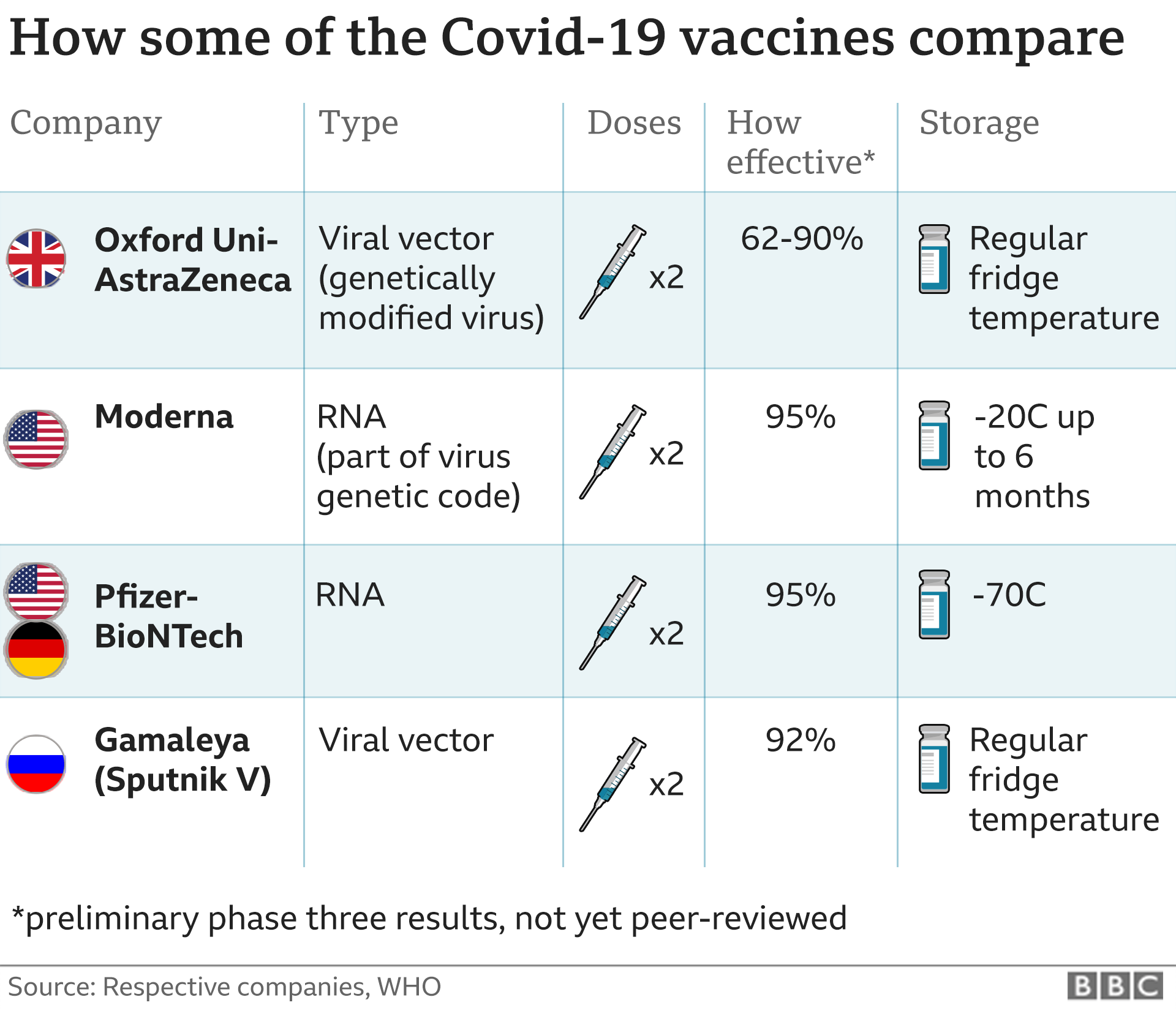
Two full doses of the Oxford vaccine gave 62% protection, a half dose followed by a full dose was 90% and overall the trial showed 70% protection.
Vaccine co-lead Paul Young described the decision as "devastating" after 11 months of "living and breathing this project".
"While this is a tough decision to take, the urgent need for a vaccine has to be everyone's priority," he said.
Other medical experts have also praised the "realistic" decision to abandon the UQ vaccine, saying it reflects the reality of vaccine development.
"In general, about 90% of vaccines never make it to market. As a global community, we have been spoilt with the unprecedented swiftness and success with which the development of Covid-19 vaccines have taken place," said infectious diseases expert Sanjaya Senanayake from the Australian National University.
What does it mean for Australia?
Australia has all but eliminated community transmission of the virus, after getting on top of outbreaks in recent months.
Prof Murphy said the nation was in a "wonderful position" at present, but there would be "full population coverage" from two vaccines in 2021.
"We don't need emergency approval - we're in a good position because we've controlled the virus," he said on Friday.
"So I'm very confident about the successful vaccination strategy that we'll be facing next year."
The government said it had prepared for this sort of situation and as such had "spread the risk" with multiple deals for vaccines.
Prime Minister Scott Morrison said focusing Australia's manufacturing efforts on the other vaccines would mean "we are more likely to have the entire population vaccinated earlier rather than later".
The Oxford vaccine has been found to be "safe and effective", according to researchers, but is awaiting approval from regulators around the world.
Early 2021 is still listed as when the first vaccines - most likely from Oxford/AstraZeneca - are scheduled to be given to Australians.
Australia has a population of 25 million people. It recorded just one case of local transmission in the past week.
The nation has reported 908 deaths and 28,000 cases so far during the pandemic - far fewer than many nations.
It has been praised for responding quickly to the pandemic with border shutdowns, lockdown measures and aggressive contract-tracing efforts. Some failures, however, have been blamed for deaths.
Victoria crushed the country's worst outbreak after four months of a severe lockdown in the state capital, Melbourne.
‘Burbing’ around Melbourne’s tough lockdown
Related topics
- Published8 December 2020
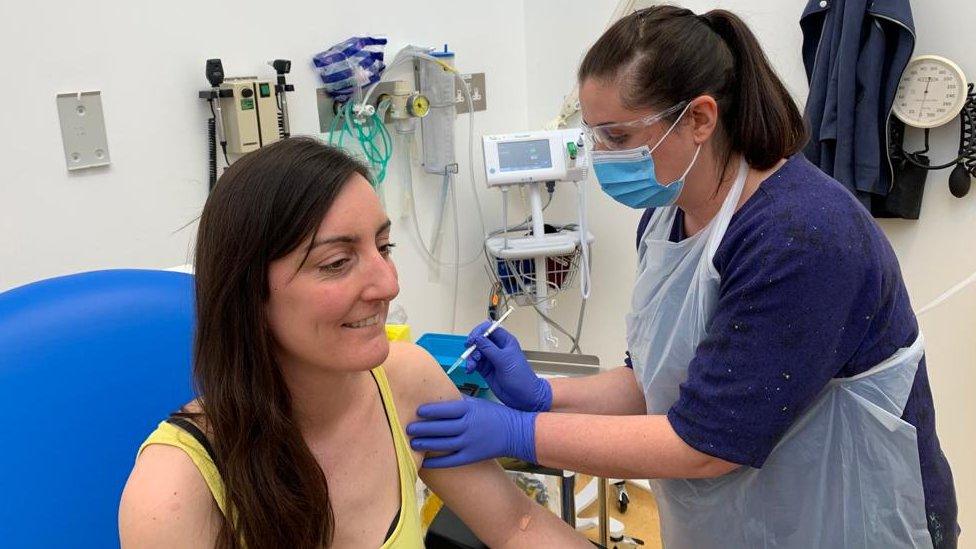
- Published15 February 2022
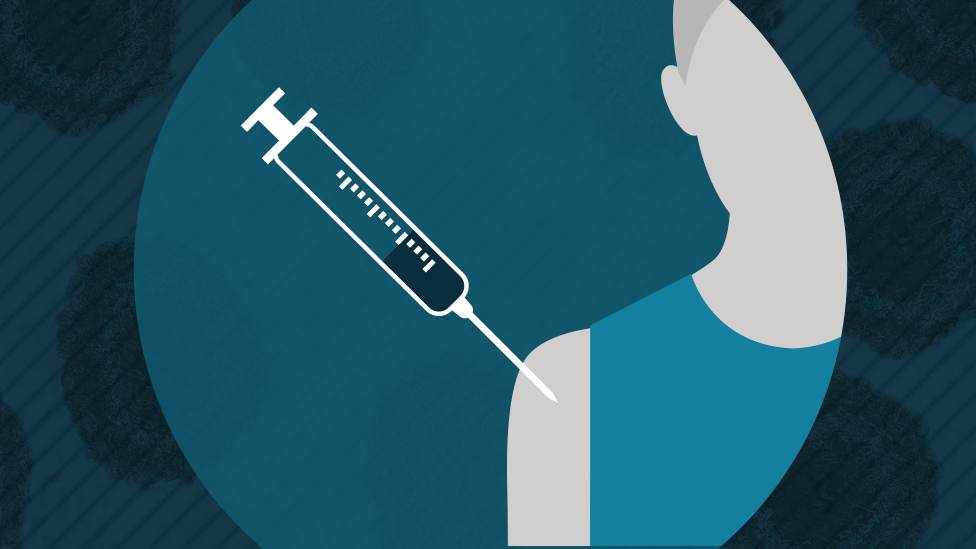
- Published8 December 2020
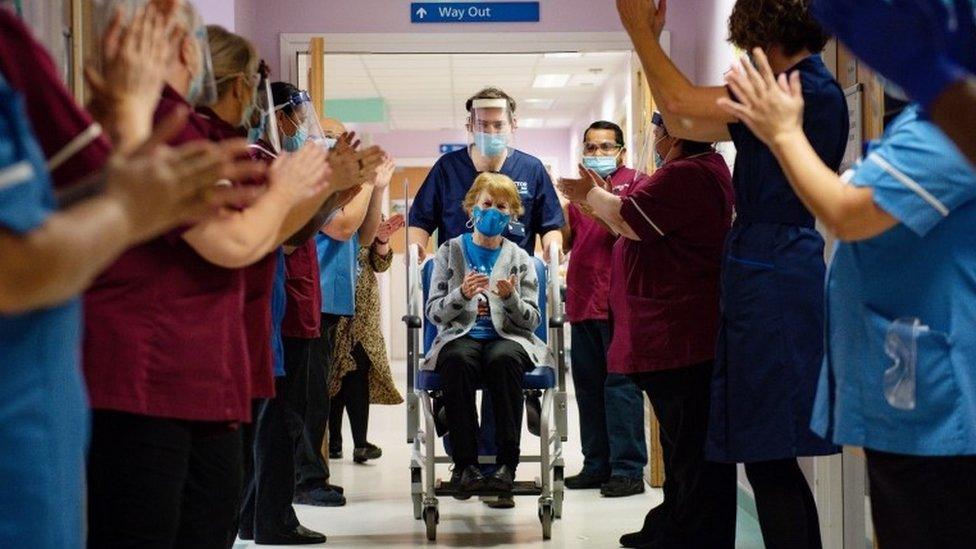
- Published7 September 2020
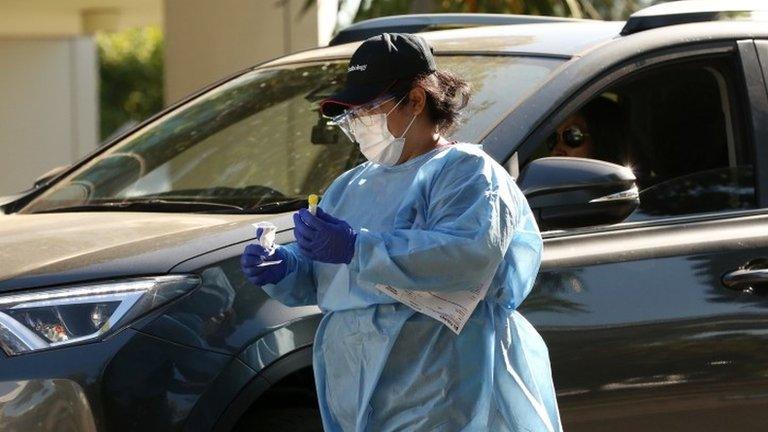
- Published19 August 2020
